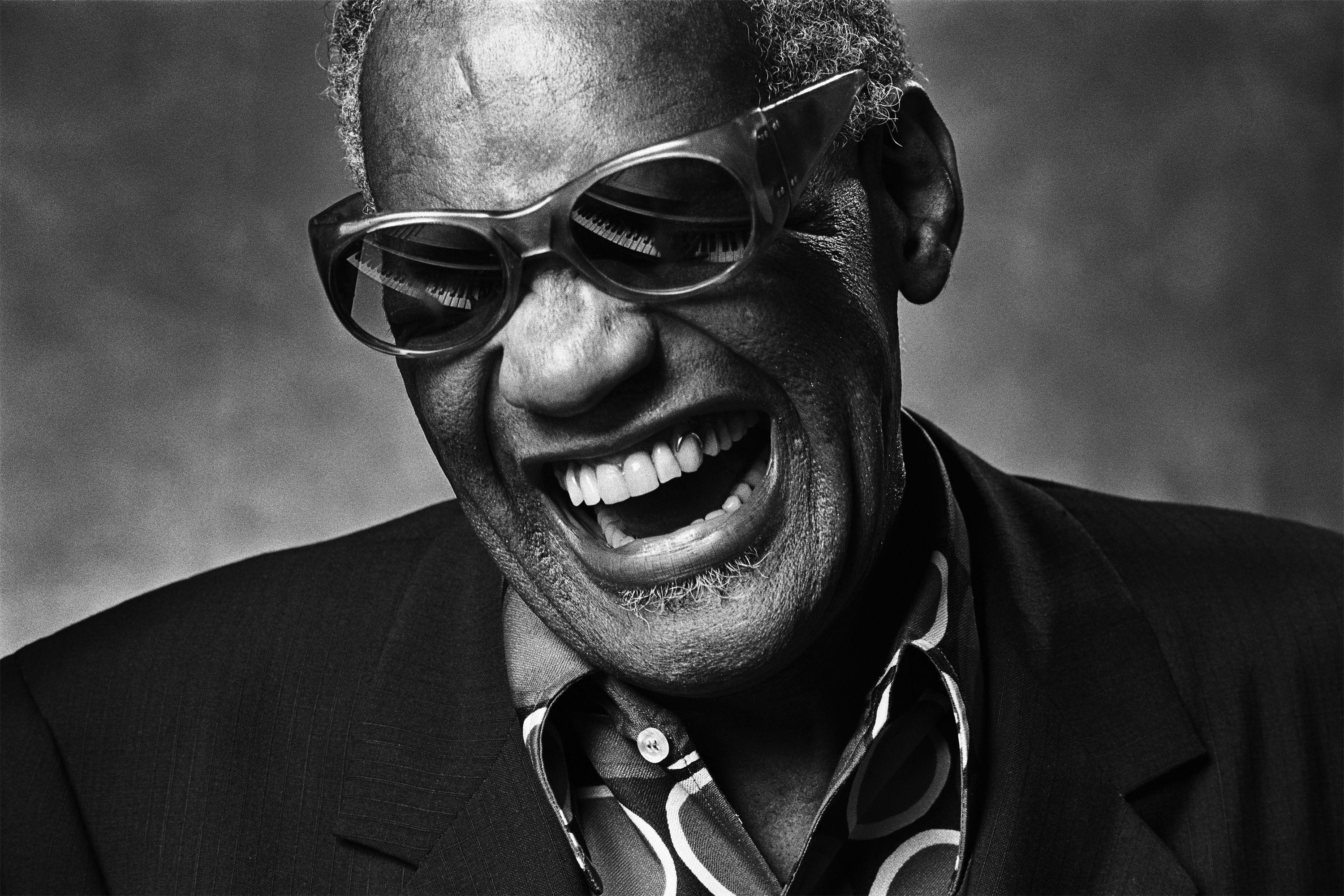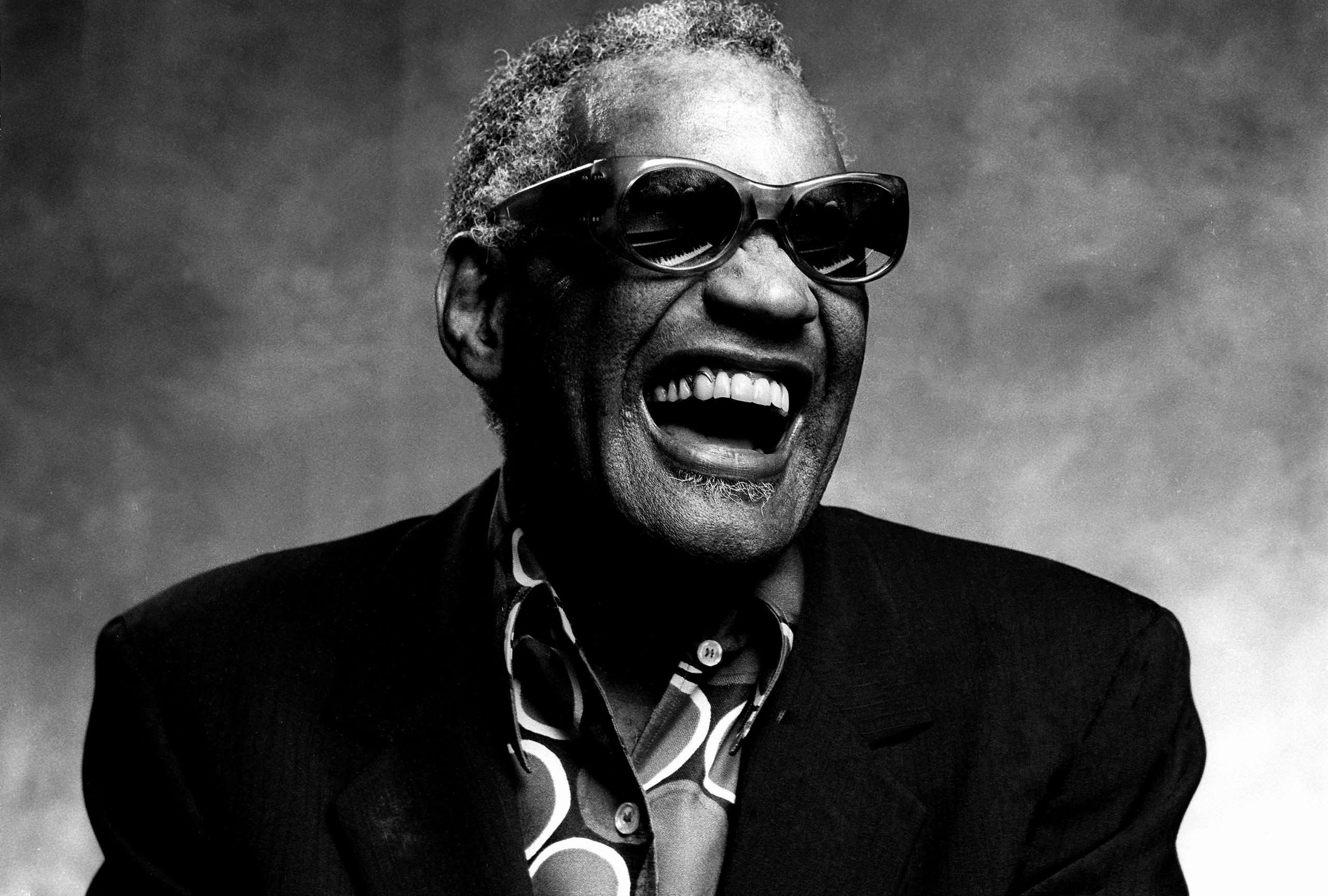Ray Charles: Biography, Music & Legacy - Explore His Life & Hits
Can music truly transcend the boundaries of genre, time, and even physical limitations? Ray Charles Robinson, known simply as Ray Charles, proved that it not only could, but should. His life's work was a testament to the transformative power of music, a legacy etched in the hearts of millions and indelibly imprinted on the very fabric of American culture.
They called him "The Genius," a moniker that, in Charles's case, was far from hyperbole. He was a singer, songwriter, pianist, and bandleader whose influence on music is immeasurable. He didn't just sing songs; he lived them. He didn't just play music; he felt it. Charles possessed an uncanny ability to blend seemingly disparate musical styles jazz, gospel, rhythm and blues, country, and even rock into a singular, powerful voice that defined a new era in music, particularly pioneering the genre we now know as soul music.
| Full Name: | Ray Charles Robinson |
| Born: | September 23, 1930, Albany, Georgia, USA |
| Died: | June 10, 2004, Beverly Hills, California, USA |
| Genres: | Soul, Rhythm and Blues, Jazz, Gospel, Country |
| Instruments: | Vocals, Piano |
| Notable Songs: | "What'd I Say," "Georgia on My Mind," "I've Got a Woman," "Unchain My Heart," "Hit the Road Jack," "Night Time Is the Right Time" |
| Key Albums: | The Genius of Ray Charles, Modern Sounds in Country and Western Music, Ray Charles, Genius Loves Company |
| Awards and Recognition: | Grammy Lifetime Achievement Award, Kennedy Center Honors, Numerous Grammy Awards, Induction into the Rock and Roll Hall of Fame, and many more. |
| Official Website: | www.raycharles.com |
Ray Charles's journey began in Albany, Georgia, on September 23, 1930. His childhood, however, was marked by hardship. Young Ray's early life was tragically affected when he began to lose his eyesight at the age of four. While the exact cause remains unknown, this early loss of sight would profoundly shape his life and his music, developing a heightened sensitivity and perception that would fuel his artistic expression. This physical affliction, while a severe challenge, arguably served as a catalyst, enhancing his other senses and sharpening his musical gifts. He would go on to be raised in Greenville, Florida. His father, Bailey Robinson, was somewhat absent during his formative years and his mother, Aretha Williams, became the primary caregiver for Ray and his younger brother, George.
- Laro Benz Ethnicity Family Amp Career Unveiling His Story
- Francis Escudero Net Worth 2024 How Rich Is The Politician
From these humble beginnings, Charles carved a path that would redefine music. Charles's musical education began at the age of seven at the Florida School for the Deaf and the Blind in St. Augustine, where he learned to read Braille and developed his musical skills, learning to play the piano, clarinet, trumpet, and saxophone. His early influences included the blues and gospel music he heard in his community and on the radio. It was in this environment that the young Ray Charles began to hone his prodigious musical talents. This formal education provided him with the foundation he needed to navigate the world and the music industry with confidence.
His professional career launched at a young age; he was a teenager when he began performing professionally. He moved to Seattle, Washington, where he began to build a name for himself in the local music scene. Initially, he modeled his style after his idols, such as Nat King Cole, but he soon developed a unique style, blending gospel and blues into a distinctive sound that was entirely his own. This innovative fusion of styles marked the beginning of his journey toward musical greatness.
The 1950s were a pivotal decade for Charles. It was during this period that he truly began to hit his stride, releasing a string of groundbreaking hits that would change the course of music history. Songs like "I Got a Woman" (1954) blended gospel fervor with secular lyrics, creating a powerful and controversial sound. "What'd I Say" (1959) a song that became a cornerstone of rock and roll further showcased his ability to electrify audiences. These songs, and many others, challenged the conventions of the time and established Charles as a visionary artist, as he pushed the boundaries of musical genres.
- Lilith Berry Real Or Ai Exploring The Mystery Potential
- Barron Trump Singing Factcheck Viral Ai Videos Explained
Charles's influence extended beyond his unique sound. He was a pioneer in the music industry, advocating for artists' rights and fighting for fair treatment. His dedication to these principles was just as significant as his musical achievements. He was known for his strong business acumen and his determination to control his own artistic destiny.
His ability to traverse genres was another hallmark of his genius. He wasn't confined by labels; he embraced all forms of music. His Modern Sounds in Country and Western Music albums, released in the early 1960s, were particularly revolutionary. These albums took classic country songs and infused them with Charles's signature soul and jazz sensibilities. He transformed the songs into his own. They were commercially successful and also earned him critical acclaim, demonstrating the breadth of his talent and his ability to connect with audiences of all backgrounds.
Despite his global fame, Charles maintained a deep connection to his roots. He was proud of his African-American heritage and used his platform to advocate for civil rights. Though he never sought the spotlight for activism, his music itself was a powerful statement, a testament to the resilience of the human spirit. His songs often explored themes of love, loss, and hope, providing solace and inspiration to listeners worldwide.
The personal life of Ray Charles was as complex as his music. He married Della Beatrice Howard in 1951. Although the marriage ended in divorce in 1952, it marked an important phase in his life. Years later, he married again to Eileen Williams. He had twelve children with several women. He often struggled with personal demons, and his story is one of both triumph and tribulation. However, even in the face of adversity, he remained committed to his art, which was the ultimate outlet for him.
The legacy of Ray Charles continued to evolve and grow. Charles passed away on June 10, 2004, in Beverly Hills, California, leaving behind an unparalleled body of work. His final album, Genius Loves Company, released just two months after his death, featured duets with a wide range of musical admirers and contemporaries, from B.B. King and Van Morrison to Norah Jones and Willie Nelson. The album was a testament to his lasting influence and the deep respect he had earned throughout his career. It was also a poignant reminder of his genius and the profound impact he had on the world.
Charles's contributions to music continue to be recognized and celebrated. He received a Grammy Lifetime Achievement Award and was inducted into the Rock and Roll Hall of Fame. His music is constantly sampled, covered, and reinterpreted by artists of all genres. He is considered one of the most iconic and influential musicians in history. His songs are timeless, and his influence on popular culture remains undeniable.
Charles's music has resonated with listeners for generations. He created a soundtrack to life for many, filled with the essence of the human experience. His songs are not just listened to; they are felt. They evoke emotions and create memories that last. From his gospel-infused ballads to his upbeat, energetic performances, Charles's voice and his unique musical approach provided comfort, inspiration, and joy.
His career demonstrated the extraordinary power of perseverance and creativity. Despite the challenges he faced in life, Charles never let go of his passion for music. Instead, he transformed his adversity into art, inspiring others to do the same. His story serves as a powerful example of how determination, talent, and the ability to embrace one's own voice can truly make a difference in the world.
The official Ray Charles website serves as a central hub for everything related to the artist, which includes information on his career, discography, and licensing options. This website preserves the legacy of The Genius for future generations. This dedication to his work ensures that the music of Ray Charles continues to reach new audiences and stay as relevant as ever. From licensing his music to the preservation of his recordings, there are efforts being undertaken to ensure his art will live on.
Ray Charless music transcends time, cultural differences, and genre boundaries. He was a true innovator, a master of his craft, and an icon whose music continues to inspire and influence. His life story continues to resonate with audiences worldwide. His lasting impact serves as a testament to the transformative power of music, and to the genius of Ray Charles.
The man who sought greatness, not just fame, has indeed achieved it, and his name will forever be synonymous with musical brilliance and timeless artistry. He remains the soul, the genius, and the father of soul.
- Discover Your Free Open Source Iot Device Management Solution
- Jon Lovitz Age Net Worth Snl Career Everything You Need To Know

Ray Charles Profile Images — The Movie Database (TMDB)

Ray Charles Wallpapers Top Free Ray Charles Backgrounds WallpaperAccess

12 Facts About Ray Charles Facts